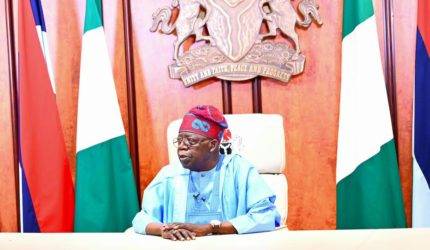Nigeria’s economy has seen a marked improvement, with the Gross Domestic Product (GDP) growing by 3.19% in real terms year-on-year in the second quarter of 2024. This growth outpaces the 2.51% recorded in the same quarter of 2023 and the 2.98% achieved in the first quarter of 2024, signaling a positive trend in the nation’s economic trajectory.
The Services sector has been the primary driver behind this growth, expanding by 3.79% and contributing a significant 58.76% to the aggregate GDP. Other sectors have also shown resilience, albeit at a slower pace. The agriculture sector, for instance, grew by 1.41%, slightly down from the 1.50% recorded in the second quarter of 2023, yet it still accounted for 22.6% of Nigeria’s GDP in the first half of 2024. This sector’s performance, along with the contributions from Information & Communication (19.8%), Trade (16.4%), Manufacturing (8.46%), and Financial & Insurance services (6.57%), underscores the diversified nature of the economy.
Driving Forces Behind Economic Expansion
The Nigerian government’s efforts to diversify the economy away from its traditional reliance on oil are gradually paying off. By promoting sectors such as agriculture, technology, and services, the government has helped create a more balanced and resilient economy. “The diversification efforts are paying off gradually, and we’re seeing a more balanced economy,” said Maria Nathaniel, a leading economist. “This is a positive trend that will help Nigeria weather future economic shocks.”
Investment in infrastructure has also played a critical role in boosting the economy. Improvements in transportation networks, electricity supply, and telecommunications have enhanced the ease of doing business in Nigeria. These developments have not only made it easier for businesses to operate but also improved access to essential services for the population, further supporting economic growth.
Foreign portfolio investments (FPIs) have seen a notable increase, driven by the government’s proactive measures to attract investment and promote trade. This influx of foreign capital has provided much-needed liquidity, stimulating economic activities and creating new opportunities for businesses and individuals across the country. As Nigeria continues to build on these successes, the future of its economy looks increasingly promising.
Sectoral Contributions and GDP Growth
In the second quarter of 2024, Nigeria’s economic landscape witnessed a significant shift, with the industry and services sectors playing a more prominent role in the country’s aggregate GDP. According to the National Bureau of Statistics (NBS), these sectors accounted for a larger share of the Gross Domestic Product (GDP) compared to the same quarter in 2023, highlighting their growing importance to the nation’s economy. The aggregate GDP at basic prices was recorded at N60,930,000.58 million in nominal terms, representing a year-on-year growth of 16.94% from the N52,103,927.13 million noted in Q2 2023.
The Nigerian economy is broadly classified into two main sectors: oil and non-oil. This classification provides a clearer understanding of the country’s economic performance and growth trends. The non-oil sector, particularly industry and services, has shown resilience and is becoming increasingly crucial to Nigeria’s economic stability. As these sectors continue to expand, they offer a glimpse into the potential for sustainable growth beyond the traditional reliance on oil revenues. This diversification is essential for the country’s long-term economic strategy.
Insufficient Pace of Of Nigeria Growth
Despite the evident progress, economic experts caution that the current pace of growth may not be sufficient to have a tangible impact on the average Nigerian citizen. One of the critical issues highlighted is the decline in oil production, which, though accounting for less than 7% of the GDP, remains a pivotal factor in determining the overall economic health of Nigeria. Dr. Kayode Adegoke, an economic analyst, stressed that to drive substantial economic growth, there needs to be a concerted effort to increase oil production and attract foreign exchange. He noted that the correlation between oil output and economic stability is still strong, even as the economy diversifies.
However, there are positive signs on the horizon. With new security measures implemented to combat oil theft, reports indicate that oil production has improved, averaging over 1.5 million barrels per day. Additionally, Foreign Portfolio Investments (FPIs) surged significantly in July, suggesting a potential rebound in the third quarter. As Nigeria’s economy continues to recover, experts predict a notable increase in job creation, economic opportunities, and overall living standards.
The government’s role in sustaining this growth and ensuring that its benefits are felt across all strata of society is vital. With a projected annual GDP growth rate exceeding 5%, Nigeria is well-positioned to strengthen its status as a leading economic force in the region. However, as Maria Nathaniel, an economic strategist, remarked, addressing challenges like corruption and inequality is crucial to ensuring that the growth is inclusive and sustainable for all Nigerians.
Table of Contents
Discover more from OGM News NG
Subscribe to get the latest posts sent to your email.














